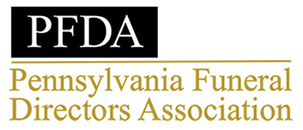
It’s entirely a matter of personal preference as to whether your loved one wanted their funeral to be religious or not.
It’s completely up to the respective individual to make the choice, and you may make the necessary arrangements as per their wishes.
Like a religious funeral, a non-religious funeral can include a variety of music, non-religious readings, and personal tributes. The key distinction is that a non-religious service won’t include any prayers, songs, religious readings, or allusions to an afterlife.
Unconventional send-offs, however, are becoming more and more popular as people move away from traditional funerals to make funerals more personal.
So if you’re looking into ways that would allow you to honor your loved one’s life in a non-traditional, non-religious way, this blog post may guide you.
What happens at non-religious funerals?
In a non-religious service, the life of the departed is honored without reference to any religious customs, practices, or rituals, unlike conventional funerals where the ceremony may be conducted by a priest.
Such services may be referred to as “humanist” or “atheist” funerals and have a similar format to a formal ceremony.
There won’t be any hymns or Bible readings, however—only music and readings from cherished people. Family and friends will still be gathered to celebrate the life lived by their loved one, but non-religious services, when compared to religious funerals, are more personal and intimate.
What are the types of non-religious funerals?
Arranging a funeral for a loved one is challenging, especially while you’re grieving as well. You’d want to select the service that most accurately captures their character and way of life. There is, however, a funeral service out there for every personality.
Non-religious options, like humanist and atheist funerals, are also thought to be alternative types of funerals. Humanist and atheist funerals are similar but differ based on beliefs. An atheist is a person who believes there is no God and has no religious beliefs. A humanist is also not religious but strongly believes you only have one life and makes decisions based on ethics, happiness, and welfare.
Many now opt for direct cremation where no guests are present and no funeral service takes place. Instead, after the cremation, the ashes are given to a family member who can either keep them or spread them somewhere the deceased was emotionally attached to.
Where can non-religious funerals take place?
Unlike traditional funerals, non-religious services can take place anywhere—any location the deceased held close to their heart. Fortunately, there are many beautiful locations where a non-religious service can be held.
These locations include, but are not limited to:
- Crematorium
- Cemetery
- Community spaces
- Football ground
- Music venue
- Your home
There may be modest customs, like placing flowers and lighting candles, carried out throughout the service because these forms of funerals are essentially devoid of rules and restrictions and purely based on the deceased’s wishes.
Obtain help from a funeral service provider to arrange a non-religious funeral
What’s comforting about this kind of service is that those who knew the deceased best—the family and friends—decide and define it in large part, with consideration of what their loved one may have wanted.
It’s up to the family of the deceased to choose if they would wish to hire a funeral service provider for assistance or not. The deceased may have even left instructions in their will or funeral plan, but if they haven’t, you may speak to their family and friends and mutually decide which type of service would best suit them based on their religious beliefs.



